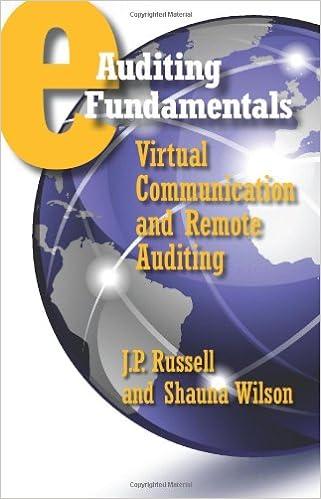

Solomon Academy is a profit-oriented education business. Solomon provides remedial training for high school students who have fallen behind in their classroom studies. It charges its students $1,745 per course. During the previous year, Solomon provided instruction for 1,000 students. The income statement for the company follows: Revenue Cost of instructors Overhead costs Net income $ 1,745,000 (1,190,000) (345,000) $ 210,000 The company president, Andria Rossi, indicated in a discussion with the accountant, Sam Trent, that she was extremely pleased with the growth in the area of computer-assisted instruction. She observed that this department served 200 students using only two part- time instructors. In contrast, the classroom-based instructional department required 32 instructors to teach 800 students. Ms. Rossi noted that the per-student cost of instruction was dramatically lower for the computer-assisted department. She based her conclusion on the following information: Solomon pays its part-time instructors an average of $35,000 per year. The total cost of instruction and the cost per student are computed as follows: Computer-Assisted Type of Instruction Number of instructors (a) Number of students (b) Total cost (c = a $35,000) Cost per student (c + b) 2 200 $ 70,000 classroom 32 800 $1,120,000 $ 1,400 $ 350 Assuming that overhead costs were distributed equally across the student population, Ms. Rossi concluded that the cost of instructors was the critical variable in the company's capacity to generate profits. Based on her analysis, her strategic plan called for heavily increased use of computer-assisted instruction. Assuming that overhead costs were distributed equally across the student population, Ms. Rossi concluded that the cost of instructors was the critical variable in the company's capacity to generate profits. Based on her analysis, her strategic plan called for heavily increased use of computer-assisted instruction. Mr. Trent was not so sure that computer-assisted instruction should be stressed. After attending a seminar on activity-based costing (ABC), he believed that the allocation of overhead cost could be more closely traced to the different types of learning activities. To facilitate an activity-based analysis, he developed the following information about the costs associated with computer-assisted versus classroom instructional activities. He identified $264,000 of overhead costs that were directly traceable to computer-assisted activities, including the costs of computer hardware, software, and technical assistance. He believed the remaining $81,000 of overhead costs should be allocated to the two instructional activities based on the number of students enrolled in each program. Required a. Based on the preceding information, determine the total cost and the cost per student to provide courses through computer- assisted instruction versus classroom instruction. (Do not round intermediate calculations. Round "Cost per student" to 2 decimal places.) Type of Instruction Computer Classroom Total cost Cost per student Assisted $ 339,280 $ 1,696.40 $ 1,141,120 $ 1,426.40








